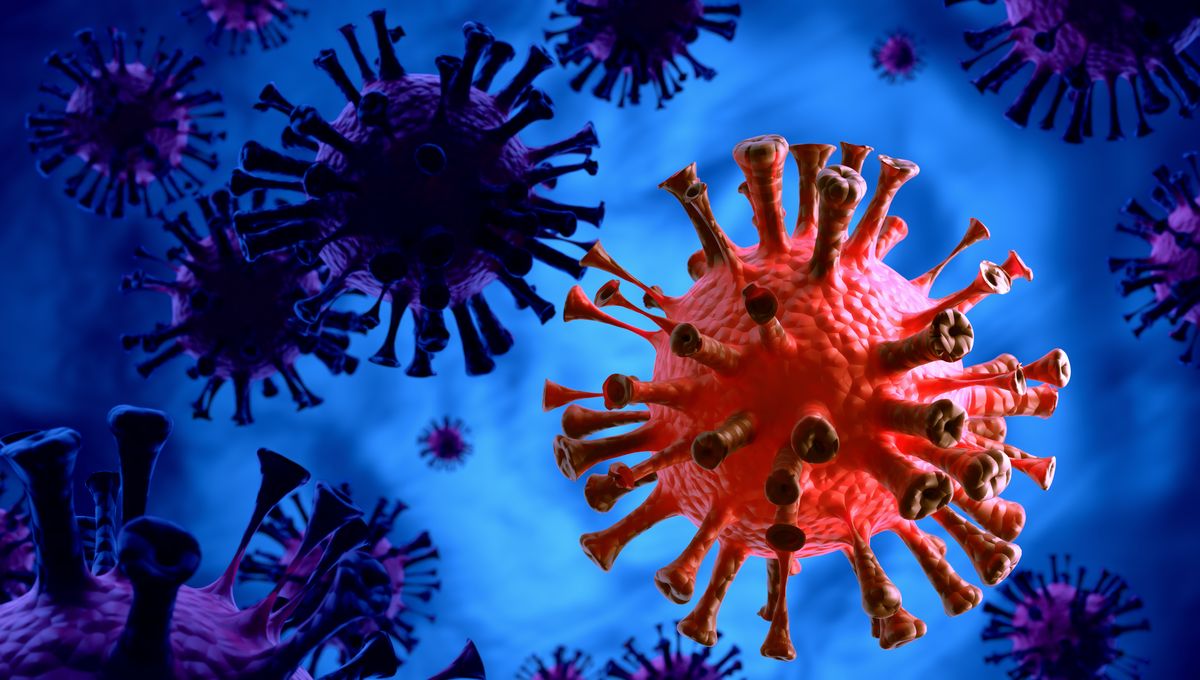
JN.1 is the latest COVID-19 variant to get attention, after being flagged in a Centers for Disease Control and Prevention (CDC) report late last month. The new, highly mutated strain is a descendant of Omicron, specifically the BA.2.86 (Pirola) variant, and while it’s not believed to be widespread at present, it does appear to be emerging in Europe and the US.
According to the report, JN.1 first popped up in September in the US and has since been detected in 11 other countries. Neither it nor BA.2.86 is common in the US: JN.1 currently makes up fewer than 0.1 percent of SARS-CoV-2 viruses. Worldwide, only 51 cases have been reported so far, per the Express.
While the CDC says they are still “learning” about the new variant, they do know a little about what it looks like. JN.1 varies from its predecessor BA.2.86 by a single mutation in the spike protein – which is key in helping the virus infect cells.
“BA.2.86 has more than 20 mutations on the spike protein and there was a concern when it was first detected a while back that, wow, this might be a real problem,” Dr Thomas Russo, professor and chief of infectious diseases at the University at Buffalo in New York, told Prevention.com.
It’s possible that JN.1 could be even more evasive, according to Russo, who described the variant as “quite devious”.
However, the CDC assures that, as per the latest data, BA.2.86 “has not evaded our immunity or spread quickly” and that updated 2023-2024 COVID-19 vaccines appear to block it. They expect JN.1 to be similar.
Despite the variant’s low spread so far, cases have been reported in the UK, Iceland, Portugal, Spain, and the Netherlands. “It’s also increasing in frequency in France,” Russo said, “it seems to be taking off.”
In terms of symptoms to look out for, it’s thought that JN.1 presents similarly to previous variants. According to the CDC, these include:
- Fever or chills
- Cough
- Shortness of breath or difficulty breathing
- Fatigue
- Muscle or body aches
- Headache
- Loss of taste or smell
- Sore throat
- Congestion or runny nose
- Nausea or vomiting
- Diarrhea
For best protection, it is recommended to keep up to date with the latest vaccines. “With concerns arising over new COVID variants, it’s vital we adapt the [vaccination] program and bring it forward for those most at risk,” Steve Russell, NHS director of vaccinations and screening, said in a BMJ report on the spread of BA.2.86.
“I strongly urge everyone eligible to come forward as soon as they can for this important protection in colder months.”
All “explainer” articles are confirmed by fact checkers to be correct at time of publishing. Text, images, and links may be edited, removed, or added to at a later date to keep information current.
The content of this article is not intended to be a substitute for professional medical advice, diagnosis, or treatment. Always seek the advice of qualified health providers with questions you may have regarding medical conditions.
Source Link: New COVID Variant JN.1 – Here’s What You Need To Know